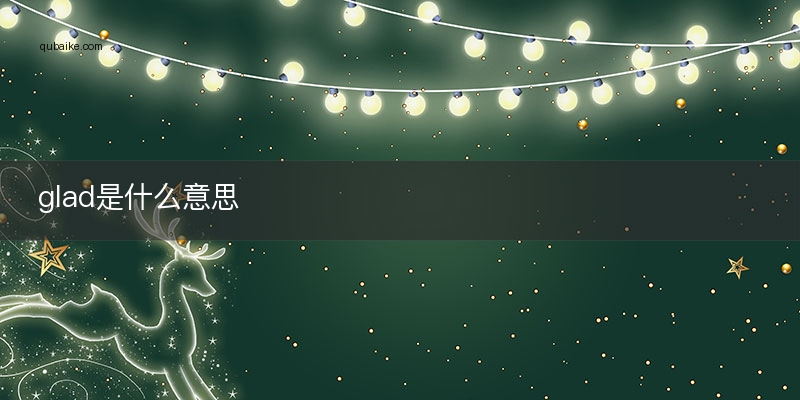
"glad you are here" "glad that they succeeded" "gave a glad shout" "a glad smile" "heard the glad news" "a glad occasion"
"glad to help"
"glad of the fire's warmth"
"a beaming smile" "a glad May morning"
误 It is glad to tell you that I have got a new job.
正 I'm glad to tell you that I have got a new job.
析 当表示“因某人自己的事而感到高兴”时,不用于It is glad for sb to- v 结构。
我很高兴明天见您。误 I'm glad to see you tomorrow.
正 I shall be glad to see you tomorrow.
析 be glad to- v 的一般现在时不能用来表示将来,在谈到将来的事情时应该用shall〔will, would, should〕 be glad的形式。